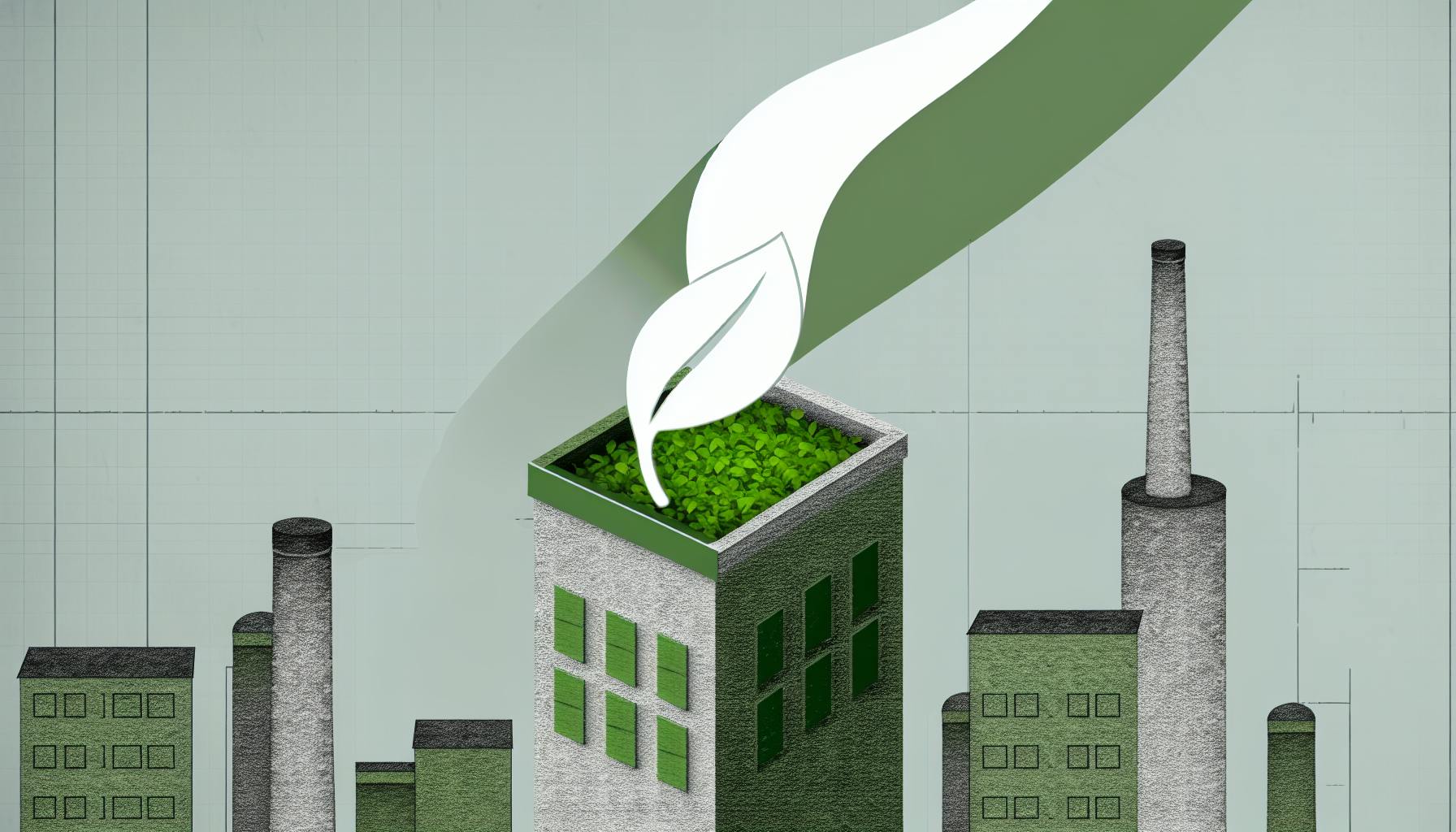Most organizations today agree that adopting sustainable business practices is critical for long-term success.
By partnering with specialized green business consultants, companies can craft comprehensive sustainability strategies tailored to their unique needs and opportunities.
In this article, we'll explore how bespoke solutions from green consultants enable organizations to capture efficiency gains, strengthen reputations, access new markets, and future-proof operations while contributing to global environmental goals.
The Rising Demand for Sustainable Business Practices
Green business consulting helps companies understand the growing demand from consumers and regulators for sustainable business practices that reduce environmental impact.
As climate change continues to threaten communities around the world, pressure is mounting for businesses to curb their environmental footprint. Studies show that consumers increasingly factor sustainability into their purchasing decisions - 88% say they would be more loyal to a company that helps them be eco-friendly. Regulators are also mandating new sustainability reporting requirements like the SEC's proposed climate disclosure rule.
In light of these trends, green business consulting has become vital for crafting and executing corporate sustainability strategies. Specialized firms provide services like:
Measuring and Reporting Carbon Footprints
Tools to calculate total corporate greenhouse gas emissions for benchmarking and disclosure.
- Carbon accounting software to map emissions across operations and supply chains
- Data analysis identifying hotspots for reduction efforts
- Guidance on emissions disclosure frameworks like CDP and GRI
Material Sourcing and the Circular Economy
Consulting on product design, procurement strategies, and supply chain management to maximize reuse of materials and minimize waste.
- Circular economy assessments to retain material value and prevent waste
- Partnerships with recyclers and upcyclers to establish closed-loop material flows
- Innovation of new products/services based on sustainability principles
Renewable Energy and Efficiency Upgrades
Feasibility studies, financing plans, and project implementation support to transition facilities to clean energy sources.
- Energy audits pinpointing savings opportunities at sites
- Planning/management of solar, wind, geothermal facility upgrades
- Securing power purchase agreements (PPAs) for renewable electricity
Sustainable Packaging and Distribution
Advising on innovative packaging materials and logistics solutions to cut carbon emissions from shipping and transport.
- Packaging redesign lowering environmental impact
- Fleet electrification, route optimisation to reduce transport emissions
- Offsetting remaining shipping-related carbon outputs
ESG Strategy and Reporting
Guidance on integrating environmental, social, and governance factors into business strategy and sustainability reporting.
- Materiality assessments revealing key ESG issues
- Governance structures linking ESG to financial performance
- Benchmarking tools tracking progress on objectives
- Reporting aligned with leading ESG disclosure standards
With mounting stakeholder pressures, green business consulting services enable companies to set targets, create strategies, and track performance on critical sustainability issues. The help of experts allows businesses to access the latest insights and technology for reducing environmental impact in ethical and future-oriented ways.
[^1]: 88% of consumers want to be more eco-friendly, study finds (InternetRetailer)
What is a green business consultant?
A green business consultant is an advisor who helps companies integrate sustainability into their business strategy and operations. As sustainability becomes an increasingly crucial priority for businesses of all sizes, green consultants provide expertise to assist companies on their sustainability journey.
Some key responsibilities of a green business consultant include:
- Conducting sustainability assessments to analyze a company's current environmental impact and identify areas for improvement
- Developing customized sustainability strategies and action plans aligned with the company's specific needs and goals
- Providing training and coaching to employees on sustainability best practices
- Helping companies comply with environmental regulations and adhere to reporting standards
- Identifying opportunities to increase efficiency, reduce waste, and maximize cost savings through sustainability initiatives
- Assisting with stakeholder engagement and sustainability communications strategies
In short, a green business consultant serves as a strategic partner - leveraging their specialized knowledge to pave the way for organizations to operate responsibly while still achieving business success. Their guidance can be invaluable for traversing the complex and rapidly-evolving sustainability landscape.
What are the Big 4 consulting firms for sustainability?
The "Big Four" accounting and professional services firms of Deloitte, EY, KPMG, and PwC have developed leading sustainability consulting practices to help clients address environmental, social, and governance (ESG) issues. These large firms offer services spanning sustainability strategy, risk and compliance, reporting and disclosure, supply chain assessments, and more.
With their scale, expertise, and global reach, the Big Four firms aim to guide companies towards ethical growth, positive impact, and value creation. For example, Deloitte assists over 75% of the Fortune 500 on corporate responsibility and sustainability. Their practitioners integrate sustainability into core business activities through tailored solutions.
Similarly, EY's global sustainability teams deliver environmental advisory centered on decarbonization, circular economy principles, and climate risk. KPMG professionals help clients plan and execute ESG transformations via training, materiality assessments and performance benchmarking. PwC also supports businesses in embedding sustainable and responsible practices through advisory, assurance services and upskilling programs.
So whether an enterprise needs help mapping sustainability KPIs, analyzing TCFD climate risks or engaging stakeholders on ESG visions, the Big Four's interdisciplinary teams strive to provide end-to-end guidance. Their worldwide presence and understanding of local contexts further enable multinational clients to advance strategic ESG agendas globally.
How do I become a green consultant?
Becoming a green consultant requires dedication and hard work, but it can be a very rewarding career path for those passionate about sustainability. Here are the key steps to get started:
Get a relevant degree
Most green consultants have an undergraduate or graduate degree in environmental science, sustainability, business administration or a related field. Coursework in areas like environmental policy, energy systems, and corporate social responsibility helps build a solid knowledge base.
Gain practical experience
Look for internships or entry-level sustainability roles at corporations, nonprofits, or government agencies. This hands-on experience shows your commitment to the field and ability to apply classroom concepts to real-world projects.
Obtain professional certification
Earning credentials from groups like the International Society of Sustainability Professionals (ISSP) or the Association for the Advancement of Sustainability in Higher Education (AASHE) bolsters your expertise. Many clients specifically seek out certified consultants.
Specialise in a niche
Focus your consulting practice within a specific area like waste management, renewable energy, green building design, or carbon accounting. This deep knowledge makes you more valuable to clients in your niche.
Build your reputation and network
Attending sustainability conferences, writing guest articles, or giving talks raises your personal brand as an authority in green consulting. Networking expands your list of potential clients and partners.
Keep learning and updating your skills
The sustainability field evolves rapidly. Stay on top of new regulations, technologies, standards, and best practices through continued coursework, research, and professional development. Adaptability is key.
With passion, persistence, and the right education and experience, you can build a vibrant career as a green business consultant. Sustainability is a growing field with increasing opportunities to make a positive impact.
How do I become an ESG consultant?
Becoming an ESG consultant requires dedication and hard work, but can be a rewarding career path for those passionate about sustainability. Here are some key steps to get started:
Earn a relevant degree
Complete a bachelor's or master's degree in environmental science, sustainability, business administration or a related field. Coursework in areas like environmental policy, corporate social responsibility, and data analysis is helpful.
Learn ESG principles and frameworks
Study key ESG frameworks like the UN Sustainable Development Goals, Global Reporting Initiative, SASB standards, and TCFD recommendations. Understand how businesses assess and report on ESG metrics.
Gain relevant experience
Pursue internships, fellowships or entry-level roles at sustainability consulting firms, ESG data providers, investment firms with ESG mandates or companies with robust sustainability programs. Any experience conducting ESG assessments, stakeholder engagement efforts, or analyzing impacts will be valuable.
Build a professional network
Connect with ESG professionals on LinkedIn. Follow thought leaders in the space. Join groups like Net Impact to make connections. Attend conferences and events to meet peers. These contacts can help you find job opportunities.
Get certified
Obtain relevant certifications like the Certified ESG Analyst credential offered by SASB. This will demonstrate your expertise to future employers.
With the right education, experience and connections, you can carve out a meaningful career as an ESG consultant helping organizations improve their sustainability performance.
sbb-itb-919600f
The Business Case for Sustainability
Beyond maintaining social license to operate, sustainable practices can reduce costs, open new market opportunities, and build resilient supply chains.
Cost Savings Opportunities
Implementing energy efficiency measures, reducing waste, and optimizing processes can significantly lower a company's operating expenses. Simple changes like installing LED lighting, collecting rainwater for landscaping, or preventing product defects can quickly generate positive returns on investment. Larger projects around renewable energy, electric vehicles, or automation may have longer payback periods but lead to major long-term cost reductions. Engaging green business consulting services can help identify and prioritize cost savings opportunities tied to sustainability.
Enhanced Brand Value and Reputation
Public commitments and demonstrated actions around sustainability boost customer loyalty, public image, and a company's ability to attract talented employees. Surveys find over 70% of consumers consider sustainability when making purchasing decisions. Furthermore, millennials are increasingly motived to work for businesses aligned with their values. Certifications related to net zero emissions, B-Corp status, and ESG performance signal that an organization takes stakeholder interests to heart. Savvy green business consulting leverages sustainability initiatives for competitive differentiation.
Access to Emerging Green Markets
Products and services aligned with climate goals tap into growing consumer demand and preferential procurement policies from governments as well as large corporate and institutional buyers. Early movers can gain first-mover advantage in emerging "green" market segments related to the renewable energy transition, electrified transport, regenerative agriculture, the circular economy, and more. Green business consulting firms stay on top of policy developments, consumer trends, and new technologies to help clients recognize and capture such opportunities.
Supply Chain Risk Management
Proactive measures to assess and mitigate physical, regulatory, and other ESG-related risks across global supply networks are vital for resilience. Extreme weather events, scarce resources, enforcement of modern slavery laws, and more can all translate to higher costs and business disruption if unaddressed. Green business consulting provides guidance on tracing supply chains deeper, imposing standards on suppliers, and monitoring for events that necessitate contingency planning.
Future-Proofed for Policy and Market Shifts
Strategic preparation for more stringent regulations, carbon pricing, stakeholder demands, and physical climate impacts future-proofs organisations. Scenario analyses by green business consulting experts allow businesses to stress test strategic plans under different assumptions and develop flexible responses to address uncertainties. Early adaptation prevents risky cases of stranded assets,857topics-cleanstranded clients, unfunded mandates for decarbonization, and supply chain failures. While the future may be unpredictable, sustainability helps equip companies to navigate it.
Crafting a Customized Sustainability Roadmap
Experienced consultants collaborate with clients to develop unique step-by-step plans to improve environmental performance based on priorities, budgets, and growth trajectories. These customized roadmaps empower companies to make meaningful progress on their sustainability journeys.
Baseline Assessments and Materiality Analysis
The first step in crafting an impactful sustainability roadmap is conducting a comprehensive baseline assessment to quantify current environmental impacts and emissions sources across operations. This allows hotspots for intervention to be identified. Materiality analysis also determines which ESG (environmental, social, governance) issues are most important to the business and its stakeholders. This ensures sustainability strategy focuses on the most relevant areas.
Specialized software like EcoHedge Lifecycle can facilitate detailed lifecycle assessments and materiality analysis. The automated carbon accounting and reporting streamlines quantifying GHG inventories across Scopes 1, 2, and 3. EcoHedge's engaging visual dashboards also readily identify the largest contributors to emissions footprints. This high quality sustainability data and insights inform strategic priorities and goal setting.
Target Setting and Implementation Planning
With key impact areas illuminated, consultants then guide clients in defining time-bound and measurable sustainability targets tailored to the company's capabilities and level of ambition. Short, medium, and long-term greenhouse gas reduction goals compatible with 1.5°C pathways can be established across Scopes 1, 2, and 3.
Additionally, detailed implementation plans outline the investments in green technologies, process changes, training programs, and monitoring systems required to reach set targets. Consultants connect clients with preferred partners and vendors to assist with execution.
For example, companies seeking net-zero emissions may need consultants to plan solar panel or renewable energy installations, fleet electrification, sustainable supply chain engagement, employee education campaigns, and more. Expert guidance ensures initiatives successfully deliver on objectives.
Ongoing Support for Sustainable Business Consulting
A major advantage of enlisting experienced sustainability consultants is the ongoing support they provide to optimize roadmaps over time. As new green technologies and best practices emerge, consultants update recommendations so companies can continually improve environmental performance.
Consultants also lend their subject matter expertise on net-zero frameworks, carbon removal options, and shifting ESG priorities as regulations and stakeholder expectations evolve. By regularly reviewing progress and adjusting approaches, the customized roadmaps craft sustainable success stories.
Leveraging SaaS Platforms for Efficiency and Insights
Cloud-based software brings automation, real-time tracking, and data-driven insights to maximise the business value of sustainability programs. As regulatory requirements for environmental, social and governance (ESG) disclosure accelerate globally, solutions that streamline this process are key.
Streamlined Data Collection and Management
Software tools seamlessly gather environmental KPIs from distributed facilities and upload to secure cloud platforms. By centralizing data in a single location, programs can more easily set targets, benchmark performance, and identify areas needing improvement. Integrations with sensors and meters enable automatic data aggregation, reducing manual efforts.
Green business consulting firms leverage solutions like EcoHedge to quickly onboard new sustainability clients. The software minimizes time-consuming site audits and manual data manipulation by providing out-of-the-box datasets and intuitive interfaces. This accelerates the speed at which green business consulting teams generate insights and demonstrate ROI to clients.
Advanced Analytics for Sustainability Insights
Cloud platforms apply artificial intelligence and machine learning to discover hidden opportunities within aggregated datasets. Contextual benchmarking against industry peers facilitates the prioritisation of carbon reduction investments and actions. Location intelligence layers help consultants model sustainability scenarios based on spatial relationships and patterns.
For example, consultants can overlay facility energy usage heatmaps onto demographic maps depicting community income levels. This spatial analysis may reveal equitable investment opportunities to lower emissions in marginalized neighbourhoods.
Custom Reporting and Disclosure
Automated report and website content generation streamlines mandatory and voluntary ESG disclosure. Tools instantly populate pre-formatted reports and webpages with the latest performance indicators as new data arrives. This enables green business consulting teams to efficiently communicate sustainability progress to stakeholders through customizable dashboards.
Configurable options include building portfolio-level roll-up reports across subsidiaries while preserving data privacy controls. Teams also generate sustainability reports tailored for various audiences like investors, customers and local communities.
Portfolio-wide Administration
With data unified into a single cloud platform, consultants easily track and compare sustainability KPIs across an entire building portfolio. This holistic view facilitates managing programs across multiple sites and subsidiaries from one location.
Setting organisation-wide ESG goals and targets is streamlined by leveraging aggregated data. Teams drill down into specific sites to understand performance drivers and identify priorities for green business consulting engagements.
Ongoing Compliance Management
Regulatory disclosure requirements continue expanding across jurisdictions, creating compliance challenges. Software ensures adherence by continually cross-checking performance data against the latest reporting frameworks and standards.
Teams receive notifications for newly enforced mandates, requested disclosures, filing deadlines and non-compliance risks. This simplifies compliance management as regulatory environments rapidly evolve.
Joining the Green Economy Workforce
The growing focus on ESG is driving strong demand for sustainability expertise across industries, creating new career opportunities. With climate change and social responsibility becoming top priorities, companies are seeking guidance on how to integrate environmental, social, and governance factors into their business strategies. This presents an exciting prospect for aspiring sustainability consultants to apply their skills and drive impactful change.
Skill-Building for Aspiring Sustainability Consultants
Those looking to enter this field should invest in building core competencies to demonstrate their expertise. Relevant areas of knowledge include greenhouse gas (GHG) accounting, conducting life cycle assessments (LCAs), sustainability reporting frameworks, and environmental auditing protocols. Obtaining accredited certifications in these disciplines signals to potential clients that you can offer best-practice advice. For example, the GRI Certified Training Course equips consultants to help organisations report ESG disclosures as per global standards. With strong fundamentals, aspiring advisors can tailor their skillset to work with specific industries based on interest and market demand.
Specialisations in ESG Consulting
While some basics carry across sectors, understanding nuances by vertical allows for more tailored service. Consultants might choose to specifically target advising manufacturing firms on supply chain decarbonization, guiding financial institutions on sustainable investing practices, helping hospitals improve eco-efficiency, or supporting tech companies with renewable energy procurement. Specialized training, like the ISAE 3000 sustainability assurance credential, builds competence to cater to the unique needs of different industries. This focused approach enables providing fit-for-purpose sustainability solutions to advance a company's ESG maturation.
Business Acumen in Green Consulting
Beyond technical know-how, effective consultants also integrate sustainability within the larger business context. This means conveying ESG not merely as a box-ticking exercise but connecting it to financial materiality, risk mitigation, long-term resilience, and stakeholder relations. Advisors who can make a compelling case for sustainability's impact on the bottom line and strategic growth tend to resonate more with corporate leadership teams. Bridging ESG programs with core operations and demonstrating clear ROI are key. Robust training in areas like strategic planning, project management, and change leadership allows consultants to aptly guide transitions.
Communication and Storytelling Skills for ESG Consultants
Sustainability progresses when its importance reaches all corners of an organisation. Consultants play a crucial role in spreading awareness from the C-Suite down to on-ground implementation. This necessitates wearing multiple hats as technical expert, strategist, and communicator. Beyond conveying complex information like LCA data to leadership teams, advisors must also translate sustainability goals into motivational narratives for employees. Storytelling techniques equip consultants to spark inspiration and rally collective action towards ESG targets. Public speaking, presenting data visually, and writing skills ensure clarity in sharing expertise across diverse stakeholders.
Entrepreneurship and Sustainability Consultant Jobs
The ballooning demand for ESG services means those entering this field have appealing options between joining boutique firms and big agencies or charting their own path as independent advisors. Aspiring consultants can browse listings for full-time sustainability-focused roles across sectors. Additionally, the lower barriers to launching consultancies focused on specific ESG niches provide alternate pathways. With careful planning around differentiation and cash flows in initial years, entrepreneurial consultants can fully leverage their expertise while retaining ownership of their advisory. Online professional communities also enable networking with potential clients and partners in the sustainability domain.
By combining technical sustainability competencies with business strategy perspectives and strong communication abilities, the next generation of consultants can fulfil the pressing market need for expert ESG advisory. As more companies embed social and environmental consciousness into operations, these advisors have the chance to proliferate positive impact.
Paths to Becoming a Sustainability Consultant
Sustainability consulting has emerged as a rapidly growing field focused on helping businesses reduce environmental impact and improve social responsibility. However, the path to becoming a qualified sustainability consultant requires dedication across education, experience, and credentials.
Educational Foundations and Relevant Degrees
A strong educational foundation establishes critical knowledge needed to advise companies on sustainability best practices. Relevant undergraduate degrees like Environmental Science, Sustainability Management, and Environmental Engineering provide vital grounding in areas like conservation, resource efficiency, lifecycle analysis, and more. Other applicable majors include Business, Economics, Public Policy, or Environmental Law. Aspiring consultants should target programs that offer internships, research projects, or courses directly related to corporate sustainability.
Graduate degrees can further augment technical skills and leadership capabilities. Common advanced credentials are Masters programs in Sustainability, Environmental Management, or even MBAs with a sustainability focus. The curriculum expands expertise in managing stakeholder interests, conducting lifecycle assessments, analyzing climate risk, developing eco-friendly products/services, and leading organizational change around ESG priorities.
Gaining Practical Experience in Sustainability
Beyond academic coursework, real-world experience transforms knowledge into actionable consulting abilities. Entry-level roles like Sustainability Coordinator, Environmental Analyst, ESG Data Analyst or Associate Sustainability Consultant allow recent graduates to learn the ropes at sustainable companies or specialist firms. Key experiences include collecting ESG data, writing sustainability reports, developing eco-impact reduction strategies, and assisting senior consultants on client projects.
Hands-on training might involve conducting greenhouse gas inventories, liaising with supply chain partners on ethical sourcing initiatives, or performing environmental audits at facilities. Mentorship programs and internal training equip new hires with well-rounded capabilities to eventually lead consulting engagements. Gaining such practical experience for 3-5 years develops credibility and relationships that prove invaluable as an independent consultant.
Obtaining Sustainability Consultant Certification
Voluntary sustainability certifications validate expertise and enhance credibility with future clients. Widely-recognized designations include:
- Certified Sustainability Associate (CSA)
- GRI Certified Sustainability Reporting Specialist
- Certified Sustainable Development Professional (CSDP)
Earning these credentials requires passing exams that assess knowledge of sustainability frameworks like GRI, SASB, TCFD, etc., lifecycle analysis techniques, stakeholder engagement models, and strategies for improving ESG performance.
Other valuable certifications relate to environmental auditing, like Certified Hazardous Materials Manager (CHMM) and Registered Environmental Manager (REM). Displaying such qualifications signals mastery over technical consulting skills beyond general advisory services.
With the right mix of education, experience and credentials, aspiring consultants can gain the trust of clients seeking to quantify environmental impact, engage stakeholders, and make decisive strides towards true sustainability.



.png)


